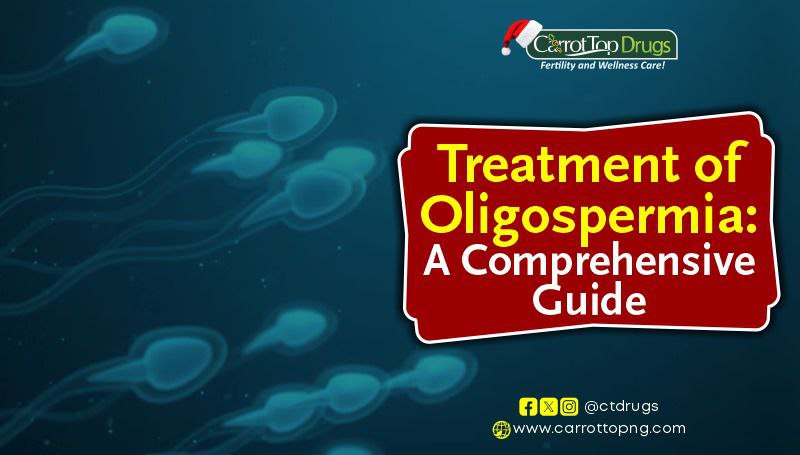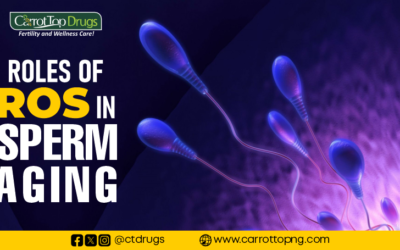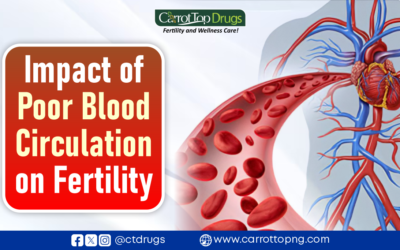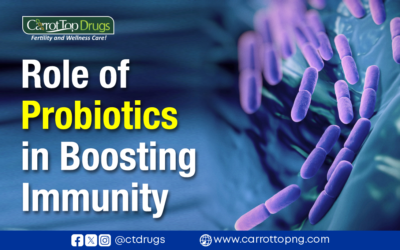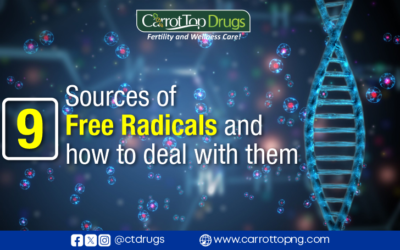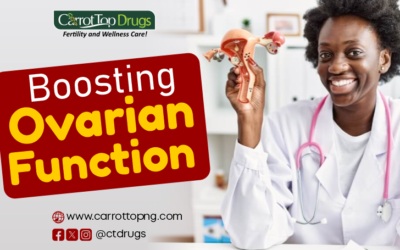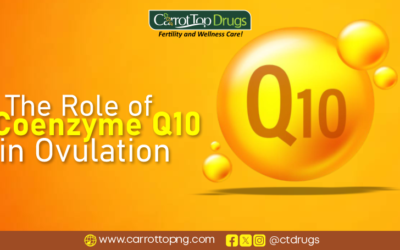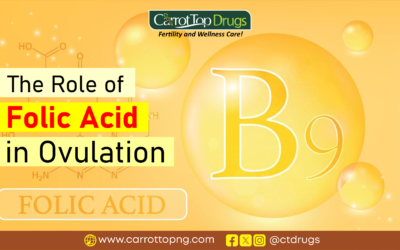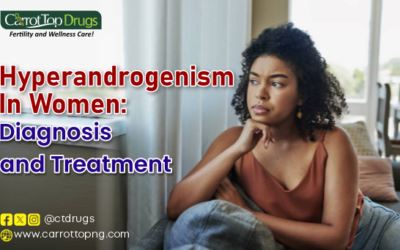Introduction
Embarking on the journey to parenthood can be a daunting task, and for some, challenges arise in the form of oligospermia. In this guide, we explore the multifaceted aspects of the treatment of oligospermia, offering insights and solutions for those navigating this fertility concern.
Definition of Oligospermia
Oligospermia stands as a pivotal term in male infertility, characterized by a lower-than-normal sperm count. The World Health Organization (WHO) defines a normal sperm count as 15 million sperm per milliliter of semen. The doctors diagnose a man with oligospermia when the count falls below this threshold. However, it’s crucial to note that several factors like sperm motility and morphology influence the ability to conceive.
Diagnosis of Oligospermia
Accurate diagnosis is paramount when it comes to addressing oligospermia effectively. This process involves a careful examination of various factors related to sperm health and fertility.
1. Semen Analysis
Semen analysis is the cornerstone of oligospermia diagnosis. This comprehensive test assesses various parameters, including sperm count, motility, and morphology. By examining a semen sample under a microscope, healthcare professionals gain valuable insights into the quantity and quality of sperm.
2. Medical History Assessment
Understanding an individual’s medical history is crucial in diagnosing oligospermia. Factors such as past illnesses, surgeries, medications, and lifestyle choices are considered. This holistic approach aids in identifying potential contributors to low sperm count.
3. Hormonal Testing
Hormonal imbalances can significantly impact sperm production. Blood tests may be conducted to measure hormone levels, such as testosterone and follicle-stimulating hormone (FSH). Deviations from normal levels can indicate underlying issues contributing to oligospermia.
4. Genetic Testing
Oligospermia can, in some cases, have a genetic component. Genetic testing may be recommended to identify any hereditary factors affecting sperm production. This information is crucial for tailoring personalized treatment plans.
5. Scrotal Ultrasound
A scrotal ultrasound provides a visual assessment of the testicles and surrounding structures. This imaging technique helps identify abnormalities, such as varicoceles (enlarged veins in the scrotum), that may impede sperm production.
6. Testicular Biopsy
In certain cases, a testicular biopsy may be performed to directly assess the health of testicular tissue. This procedure helps determine the presence of any structural abnormalities or blockages affecting sperm production.
7. Post-Ejaculation Urinalysis
Post-ejaculation urinalysis involves examining a urine sample after ejaculation to check for the presence of sperm. This can provide insights into whether issues such as retrograde ejaculation, where semen enters the bladder instead of being expelled, are contributing to oligospermia.
8. Physical Examination
A thorough physical examination, including an assessment of the reproductive organs, can offer valuable clues. Varicoceles, for example, may be detectable through physical examination and can impact sperm production.
Treatment of Oligospermia
Lifestyle Modifications
Making simple changes in lifestyle can wield a profound impact on sperm count and overall reproductive health. Here, we explore various aspects of lifestyle modifications, ranging from dietary adjustments to stress management techniques, shedding light on how these holistic changes can positively influence sperm count.
1. Dietary Adjustments
Nutrient-Rich Foods: Incorporating a balanced and nutrient-rich diet is crucial for promoting sperm health. Nutrients like zinc, vitamin C, and folic acid play vital roles in sperm production.
Hydration: Staying well-hydrated is often overlooked but is essential for maintaining overall health, including reproductive functions.
2. Regular Exercise
Moderate Physical Activity: Engaging in regular, moderate exercise has been linked to improved sperm parameters. However, excessive exercise may have the opposite effect, so finding a balance is key.
Weight Management: Maintaining a healthy weight contributes to optimal reproductive health. Both obesity and underweight conditions can negatively impact sperm count.
3. Avoidance of Harmful Substances
Limiting Alcohol: Excessive alcohol consumption can adversely affect sperm quality. Moderation or abstinence is advisable.
Tobacco and Recreational Drugs: Smoking and drug use are associated with decreased sperm count and motility. Quitting these habits positively impacts fertility.
4. Stress Management Techniques
Mind-Body Practices: Incorporating mind-body practices such as yoga, meditation, or deep-breathing exercises can effectively reduce stress levels. Chronic stress is known to hinder sperm production.
Adequate Sleep: Ensuring sufficient and quality sleep is crucial for overall health, including reproductive functions. Sleep deprivation may lead to hormonal imbalances affecting sperm count.
5. Avoiding Heat Exposure
Avoiding Hot Baths and Saunas: Prolonged exposure to high temperatures, such as hot baths or saunas, can negatively impact sperm production. Opting for cooler alternatives supports reproductive health.
6. Moderate Technology Use
Limiting Exposure to EMFs: Some studies suggest that prolonged exposure to electromagnetic fields (EMFs) from devices like laptops and smartphones may impact sperm quality. Limiting exposure can be a prudent measure.
7. Balanced Sexual Practices
Regular Sexual Activity: Regular sexual activity maintains sperm quality and motility. However, excessive or infrequent intercourse may affect sperm count.
8. Vitamin and Mineral Supplementation
Consultation with Healthcare Professionals: Seeking advice from healthcare professionals regarding the use of supplements, such as vitamin D or antioxidants, can be beneficial. These supplements may contribute to overall reproductive health.
Evergreen Formular for Men can salvage free radicals that may have affected the sperm cells. Evergreen Motility helps to deal with reduced sperm motility. While Evergreen Action helps to boost men’s libido and put it in overdrive.
9. Environmental Considerations
Avoiding Environmental Toxins: Minimizing exposure to environmental toxins, such as pesticides and industrial chemicals, helps support sperm health.
Medical Therapies to Correct Oligospermia
The treatment of oligospermia involves a range of medical therapies designed to correct underlying factors impacting sperm count and overall fertility. This section provides an in-depth overview of medical interventions aimed at rectifying oligospermia, shedding light on the mechanisms and potential benefits of each therapeutic approach.
1. Hormone Replacement Therapy (HRT)
Overview: HRT aims to address hormonal imbalances that may contribute to oligospermia. If the cause of Oligospermia is hormone related, this is a good treatment of oligospermia.
Mechanism: By supplementing deficient hormones such as FSH (follicle-stimulating hormone) and LH (luteinizing hormone), HRT stimulates the testes to produce more sperm.
Benefits: HRT is effective in cases where hormonal deficiencies are a primary factor in reduced sperm count.
2. Clomiphene Citrate
Overview: Clomiphene citrate is an oral medication commonly used to treat male infertility. This is another treatment of oligospermia due to hormonal causes.
Mechanism: It stimulates the release of hormones necessary for sperm production, promoting an increase in sperm count.
Benefits: Clomiphene citrate is a non-invasive option that can be effective in addressing oligospermia associated with hormonal imbalances.
3. Antioxidant Therapy
Overview: Antioxidant supplements aim to combat oxidative stress, which can negatively impact sperm quality and count. A supplement like Evergreen Formula for Men is capable of dealing with this. It has vitamins A, C, D3, E, K, B1, B2 and B6. These vitamins serve as antioxidants.
Mechanism: Antioxidants neutralize free radicals, preventing damage to sperm cells and promoting healthier sperm production.
Benefits: Antioxidant therapy can be beneficial in cases where oxidative stress is a contributing factor to oligospermia.
4. Gonadotropin Injections
Overview: Gonadotropins, including FSH and hCG (human chorionic gonadotropin), can be administered via injections to stimulate sperm production.
Mechanism: These injections mimic the natural hormonal signals that regulate spermatogenesis, encouraging increased sperm count.
Benefits: Gonadotropin injections are effective in cases where hormonal imbalances are hindering sperm production.
5. Selective Estrogen Receptor Modulators (SERMs)
Overview: SERMs, such as tamoxifen, can be used to address hormonal imbalances and promote sperm production.
Mechanism: By blocking estrogen receptors, SERMs stimulate the release of hormones that support spermatogenesis.
Benefits: SERMs offer a targeted approach to correcting hormonal imbalances associated with oligospermia.
6. Fertility Drugs
Overview: Various fertility drugs, such as bromocriptine, may be prescribed to address specific issues contributing to oligospermia.
Mechanism: These drugs target factors such as elevated prolactin levels, which can negatively impact sperm production.
Benefits: Fertility drugs provide targeted solutions for specific issues affecting sperm count.
7. Combination Therapies
Overview: In some cases, a combination of different therapies may be prescribed to address multiple factors contributing to oligospermia.
Mechanism: Combination therapies may include a mix of hormonal treatments, antioxidants, and other targeted interventions.
Benefits: Tailoring treatments to address multiple factors simultaneously enhances the overall effectiveness of the therapeutic approach.
Conclusion
The treatment of oligospermia requires a blend of knowledge, resilience, and optimism. This guide aims to equip individuals with the tools to address oligospermia effectively, fostering hope on their path to parenthood.
FAQs
Q: Is oligospermia treatable at home?
Addressing oligospermia at home involves lifestyle changes. While not a cure-all, these modifications can positively impact sperm count.
Q: What role does stress play in oligospermia?
Chronic stress can adversely affect sperm production. Learn stress management techniques to mitigate its impact on fertility.
Q: Are there natural supplements for oligospermia treatment?
Certain supplements, like zinc and folic acid, may aid in improving sperm count. Explore their benefits and usage.
Q: Can oligospermia be a result of genetic factors?
Genetic predispositions can contribute to oligospermia. Genetic testing may provide insights for tailored treatment plans.
Q: How long does oligospermia treatment typically take?
The duration varies based on individual cases. Patience is key, as consistent efforts over time yield better results.
Q: Is assisted reproductive technology a guaranteed solution for oligospermia?

